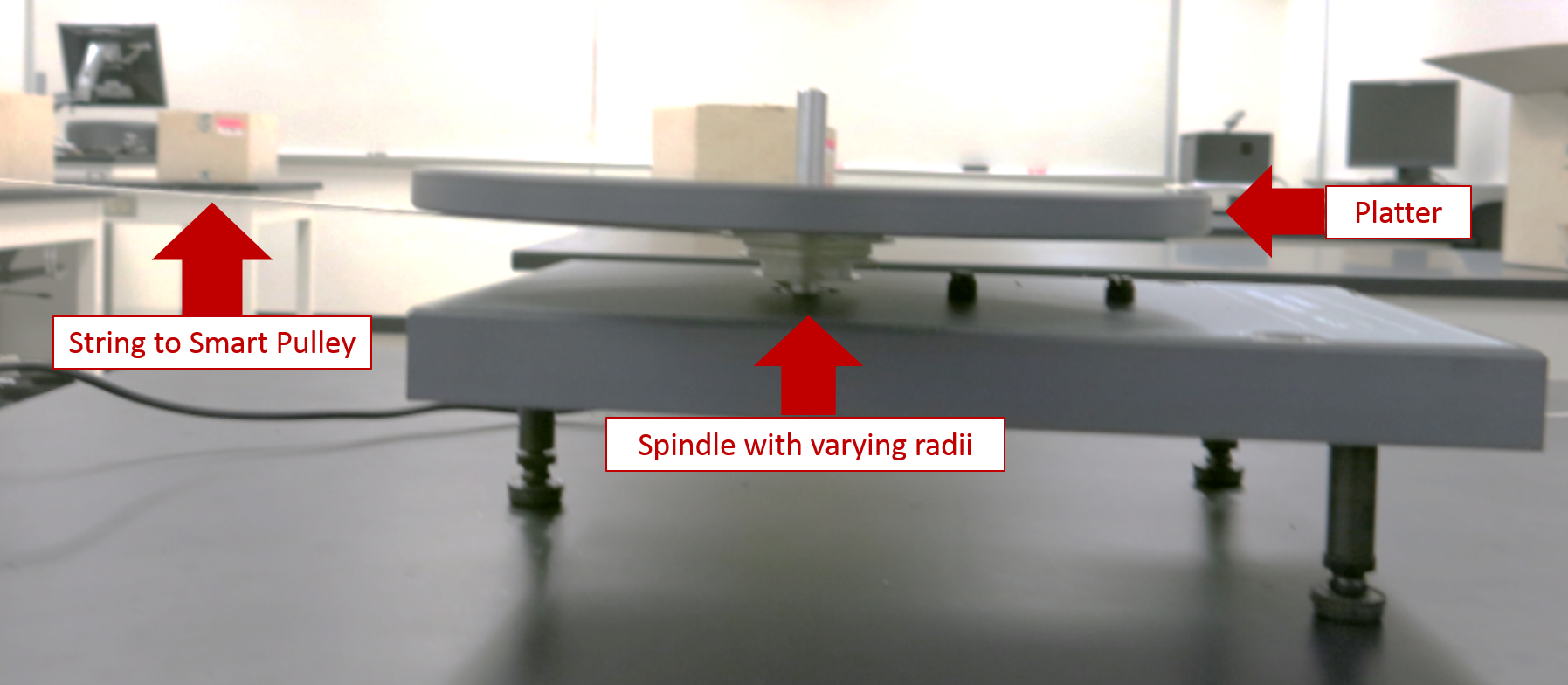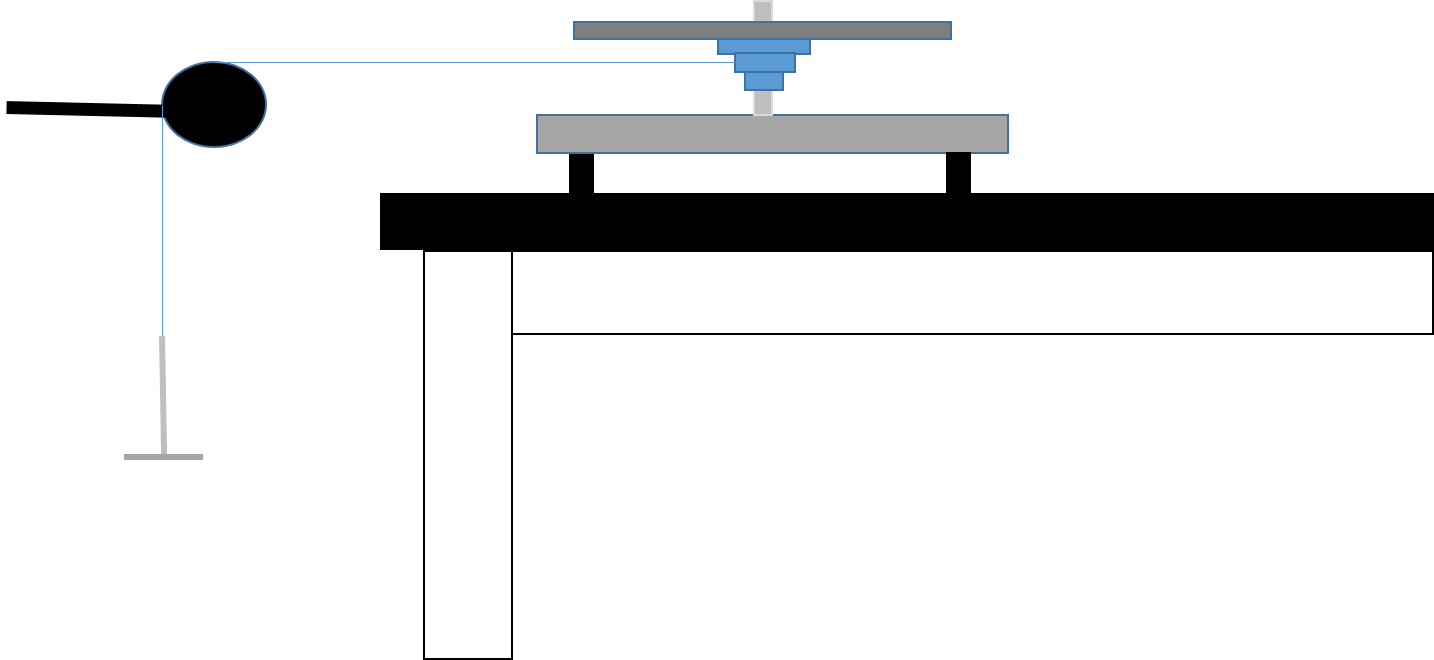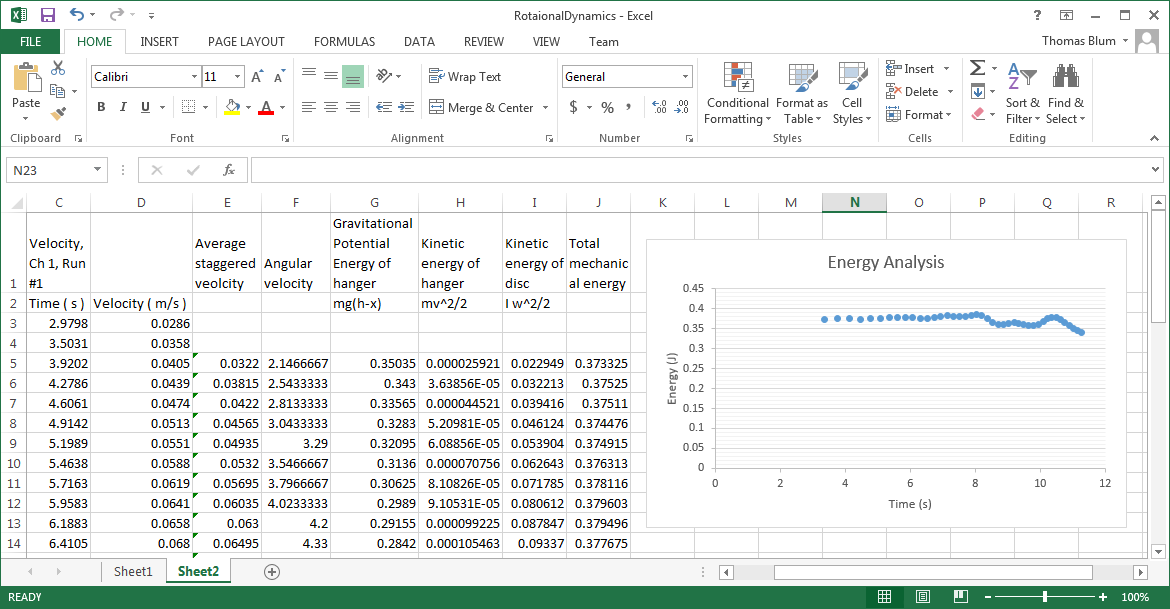Many of the physical laws previously learned for translational motion (motion in which an object changes location in space) have an analog in rotational motion (motion of an object about an axis). Consider the following analogs:
| Translational | Rotational | |
| Definition of velocity | v = dx / dt | ω = dθ / dt |
| Definition of acceleration | a = dv / dt | α = dω / dt |
| Kinematics (with constant acceleration) | v = v0 + a t x = x0 + v0 t + a t2 / 2 v2 = v02 + 2 a ( x - x0) |
ω = ω0 + α t θ = θ0 + ω0 t + α t2 / 2 ω2 = ω02 + 2 α ( θ - θ0) |
| Newton's Second Law | F = m a | Τ = I α |
| Kinetic Energy | Ekinetic = m v2 / 2 | Ekinetic = I ω2 / 2 |
where Τ is torque (kg m2/s2), α is angular acceleration (radians/s2), ω is angular velocity (radians/s), and I is moment of inertia (kg m2).
In addition to the analog between translation and rotation, another important set of equations is the relationship between them.
| Τ = r × F |
| x = θ r |
| v = ω r |
| a = α r |
We could adapt various measurements of translational motion into their rotational analogs. We will consider two basic concepts: torque giving rise to angular acceleration and rotational energy.
We will work with the apparatus shown below.


A force diagram on the hanger yields:
mhang g - Tension = mhang a
That tension is redirected by the pulley (assumed ideal) and then becomes the force giving rise to the torque. The tension and radius of the pulley should meet at right angles, so that the magnitude of the torque is just the tension times the radius.
Tension r = I α
(mhang g - mhang a) r = I α
mhang g r = I α + mhang r2 α
α = mhang g r / (I + mhang r2)
In our experiment the mass and radius of the hanger will be smaller than the mass and radius of the platter, so we will work with the following simplifying approximation
α = mhang g r / I
| Radius Variation | Weight (including hanger) = | |
| Radius ( ) | Angular acceleration ( ) | |
| Small | ||
| Medium | ||
| Large | ||
| Force Variation | Radius ( ) = | |
| Weight including hanger ( ) | Angular acceleration ( ) | |
| 1. | ||
| 2. | ||
| 3. | ||
| Pasco literature values for Moments of inertia | |
| Description | Moment of inertia (kg m2) |
| Main platter | 0.00750 |
| Steel bar | 0.00298 |
| Steel ring | 0.00246 |
| Auxilliary platter | 0.00722 |
| Moment of Inertia Variation | Radius ( ) = Weight ( ) = | |
| Moment of inertia ( ) | Angular acceleration ( ) | |
| Main platter only | ||
| Main platter with bar | ||
| Main platter with ring | ||
| Main platter with auxilliary platter | ||
| Moment of inertia ( ) | |
| Spindle radius ( ) | |
| Mass hanging including hanger ( ) | |
| Initial Height of hanger ( ) |

| Mass of steel bar ( ) | |
| Length of steel bar ( ) | |
| Mass of steel ring ( ) | |
| Radius of steel ring ( ) | |
| Mass of auxilliary platter ( ) | |
| Radius of auxilliary platter ( ) |
| Formula used | Momenta of inertia calculated ( ) | Literature value (kg m2) | Percent difference | |
| Steel bar | 0.00298 | |||
| Steel ring | 0.00246 | |||
| Auxilliary platter | 0.00722 |